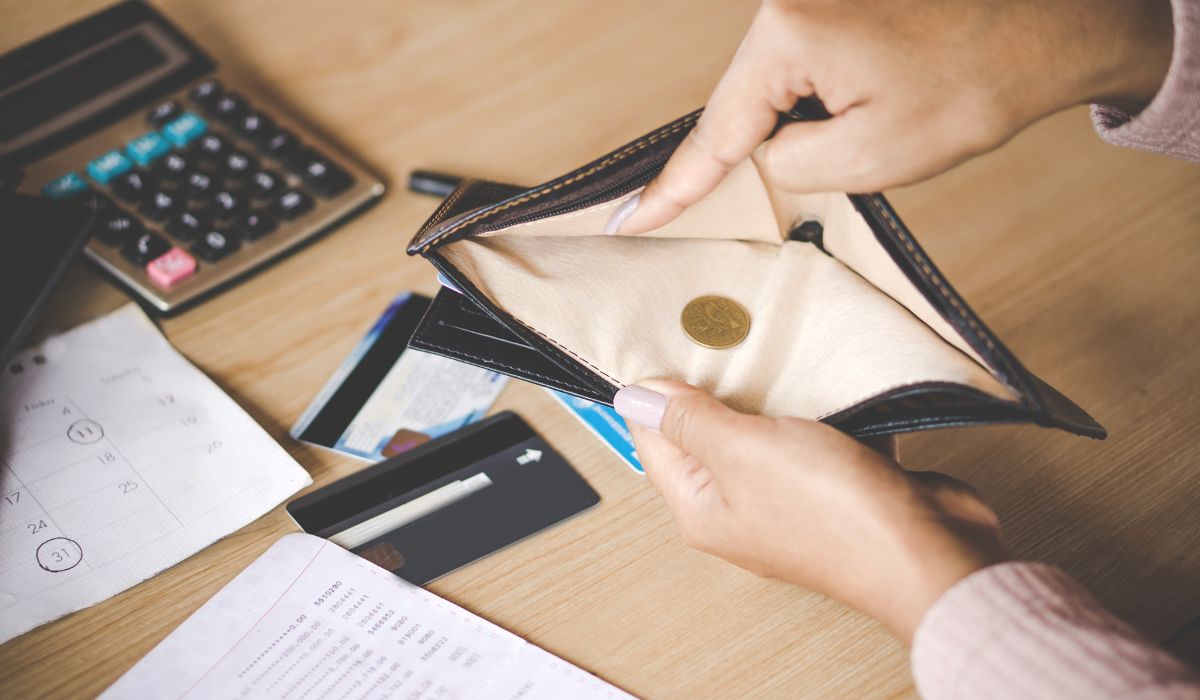The acquisition of a personal loan in Singapore is becoming an increasingly popular option for people who are experiencing financial difficulties and are looking for resources to manage their financial commitments. Nevertheless, significant questions arise. What is the maximum amount of a personal loan that I can obtain? How much personal loan can I take in Singapore?
It is essential to have a solid understanding of your borrowing capacity in order to determine the appropriate loan amount and evaluate your capacity to fulfil the responsibilities of the repayment plan.
Before applying for a personal loan, it is vital to investigate the following aspects: the amount of the loan for which you are eligible, the possibility of receiving numerous loans, the key elements to evaluate before committing to a loan, and the appropriate avenues through which to apply for a loan. Only then should the personal loan adventure begin.
What is an Unsecured Personal Loan?
A personal loan represents an unsecured financial arrangement, offering flexibility in its use for various purposes. Unlike secured loans linked to assets like your car or home, personal loans in Singapore o not require collateral. In the event of loan default, the lender does not have the authority to seize your assets.
Nonetheless, it’s imperative to note that failing to meet your repayment obligations can detrimentally affect your credit score, potentially diminishing your prospects of securing future loans.
Curious about how personal loans function in Singapore?
Upon approval of your personal loan application, the full loan amount is disbursed directly into your bank account or provided to you in cash.
These loans are characterised by a fixed interest rate and a predetermined repayment period. Personal loans adhere to an amortisation structure, which requires repayment of both the principal amount and the interest accrued.
Throughout the repayment period, which can span up to five years, you are obliged to make monthly instalments that encompass a portion of the interest and the principal.
It’s worth noting that there may be associated fees, such as processing fees, incurred during the application process. Typically, the amount disbursed after approval deducts these fees or charges from the original loan amount.
Read Also: An Easy Guide To Unsecured Loan In Singapore
What are some Possible Applications of a Personal?
In the realm of personal loans, there is no obligation to provide a specific justification for the loan’s purpose.
For example, if you initially secure a personal loan with the intent of financing your wedding but subsequently opt to allocate the funds towards settling your student loan, there are no transgressions involved.
Here are several potential purposes for which a personal loan can be employed:
- Emergency Situations. Unforeseen circumstances, such as medical or family emergencies, may need immediate access to funds that are not readily available. In such instances, a personal loan can serve as a crucial financial lifeline.
- Wedding Expenses. When envisioning your dream wedding but encountering financial constraints, a personal loan can bridge the financial gap and transform your aspirations into reality
- Educational Costs/Student Loan Repayment. Personal loans can be used to cover educational expenses or to settle outstanding student loan balances, offering a viable solution when the repayment of the original loan is challenging.
- Credit Card Debt. In cases where repaying high-interest credit card debts becomes difficult, applying for a personal loan to clear the credit card debt is an option. Nevertheless, this approach is not advisable in the long term, as it may contribute to a cycle of increasing debt.
- Debt Consolidation. If you find yourself burdened with multiple debts bearing high-interest rates, a low-interest personal loan can be obtained to consolidate these debts. This strategy aims to simplify repayment by reducing monthly instalments and making the process more manageable.
While personal loans can be sought for a variety of purposes, it is crucial to exercise discipline and allocate the funds as originally intended to avoid accruing unnecessary debt.
How Much of a Personal Loan Am I Allowed to Take in Singapore?
When considering unsecured personal loans, your borrowing limit may extend up to six times your monthly income. Conversely, secured personal loans depend on the value of your collateral to determine the allowable loan amount.
Another critical factor influencing your eligible personal loan amount is the borrowing ceiling for unsecured loans. Commencing from June 1, 2019, the Monetary Authority of Singapore (MAS) imposed a maximum cap, restricting individuals from borrowing more than 12 times their monthly income for all unsecured loan categories, encompassing personal loans, education loans, renovation loans, and outstanding credit card balances.
Hence, if you intend to obtain a personal loan and have already availed yourself of unsecured loans, equal to or exceeding 10 times your monthly income, your loan approval will be limited to a sum equivalent to just two times your monthly income. You will not be able to obtain more loans after you have hit this borrowing cap.
Lenders may also assess various factors to ascertain the extent of a low-interest personal loan you qualify for:
- Loan Purpose: The risk associated with the loan’s intended use plays a pivotal role in loan amount determination. Lenders may be more inclined to extend larger sums for critical needs like medical emergencies compared to discretionary expenses such as vacations.
- Income and Credit History: Demonstrating a stable income and a favourable credit history can enhance your prospects of obtaining a higher personal loan amount.
- Debt-to-Income Ratio: The proportion of your income consumed by existing debts significantly influences the amount lenders are willing to provide. A lower debt-to-income ratio typically results in a higher loan offer, whereas a higher ratio may lead to a more conservative lending approach.
Are You Eligible To Receive A Personal Loan?
Not everyone meets the eligibility criteria for a personal loan. While the specific qualifications may vary among different lenders, the fundamental requirements for securing the best personal loans in Singapore encompass the following:
- Residency Status: Applicants must be Singaporean citizens, permanent residents, or foreign nationals.
- Age Range: The eligible age range typically falls between 21 to 60 years.
- Income Thresholds:
- Singaporean citizens or permanent residents are typically required to have a minimum annual income exceeding $20,000.
- Foreign nationals must demonstrate an annual income ranging from $40,000 to $60,000.
Moreover, lenders often seek additional assurances, which can include:
- A steady and verifiable source of income.
- Evidence of stable employment, often with a minimum tenure of one year.
- Evaluation of your credit history, with a minimum credit rating requirement that must be met to qualify for a personal loan.
Are There Limits on the Number of Personal Loans You Can Take Out?
Under the Credit Limit Management Measure (CLMM), financial institutions are not allowed to extend a borrower’s credit limit if they have an excessive quantity of unsecured debt that is more than six times their monthly income and is made up of unpaid and interest-bearing accounts. The institution is also prohibited from introducing any new unsecured credit products that would raise the borrower’s overall credit limit above 12 times their monthly income.
It’s important to note that financial institutions (FIs), including banks, may typically offer personal loans ranging from two to six times your monthly income.
For instance, let’s consider Mr Tan, who boasts a monthly income of $10,000 and carries no outstanding unsecured debts. In his scenario, he may be eligible for personal loans amounting to a maximum of $60,000.
The actual number of loans Mr Tan can secure and their respective amounts depend on the lender’s willingness to extend credit at a given point, considering various factors and variables.
In essence, the possibility of taking out multiple personal loans remains viable as long as you remain within the borrowing limit prescribed by MAS.
Things to Take into Account when Applying for a Personal Loan
When you’re in the process of considering and applying for the best personal loan available, it’s crucial to keep the following factors in mind, both before and after submitting your application:
- Interest Rates: Different lenders offer varying interest rates on their personal loans. It’s advisable to compare rates among lenders and select the one with the lowest interest rate for personal loans in Singapore. Opting for a lower interest rate helps reduce the overall cost of the loan.
- Loan Tenure: The loan tenure refers to the duration of the repayment period. Choose a loan tenure that aligns with your ability to comfortably repay the loan. Longer loan tenures may result in higher total interest payments over time. Additionally, inquire about any minimum loan tenures and potential fees for early repayment.
- Fees and Charges: Investigate the fees and charges associated with the loan. While most lenders levy a processing fee, typically around 2-3% of the loan amount, be aware of other possible fees such as late payment charges, cancellation fees, and early repayment fees.
- Repayment Plan: It is imperative to have a well-thought-out plan for repaying the loan. Ensuring that you can afford and consistently meet your repayment obligations is crucial. Avoid accumulating multiple debts that could strain your financial capacity further.
- Exploring Alternatives: Before committing to a personal loan, consider alternative options that might better suit your needs. For instance, instead of taking out a personal loan to renovate your house, explore the possibility of obtaining a specific renovation loan designed for that purpose. Similarly, for education expenses, investigate the availability of study loans tailored to your needs.
By attentively considering these aspects, you can make a more informed decision about your loan, ultimately ensuring it aligns with your financial goals and capacity.
Where To Submit Your Application
In Singapore, both banks and licensed money lenders serve as reputable options for obtaining personal loans, each with its distinct advantages.
Banks
Banks maintain stringent eligibility criteria, often necessitating a strong credit score as a prerequisite for loan approval. The application process with banks may also entail longer approval times. Nevertheless, choosing a bank for your loan may result in a higher loan amount when compared to money lenders.
Licensed Money Lenders
Licensed money lenders offer some of the most appealing loan options in Singapore due to their more lenient requirements and expeditious approval processes. Moreover, the likelihood of loan rejection is lower, and borrowers can secure shorter repayment periods. This translates to reduced overall interest payments in the long term.
Furthermore, licensed money lenders may extend loans to individuals with incomes falling below the “at least $20,000” threshold set by certain banks. However, it’s important to note that, as a general rule, the loan amounts available through money lenders may be somewhat lower compared to those offered by banks.
Ultimately, the choice between banks and licensed money lenders hinges on your financial circumstances and requirements, with each option catering to specific needs and preferences.
Get Started Today with the Most Appropriate Personal Loan for your Preferences
Determining the precise amount of personal loan you can secure in Singapore relies on several factors, including the loan type, intended purpose, and the lender’s assessment.
For those seeking the most competitive and low-interest personal loan options in Singapore, consider the MoneyIQ loan matching platform.
















